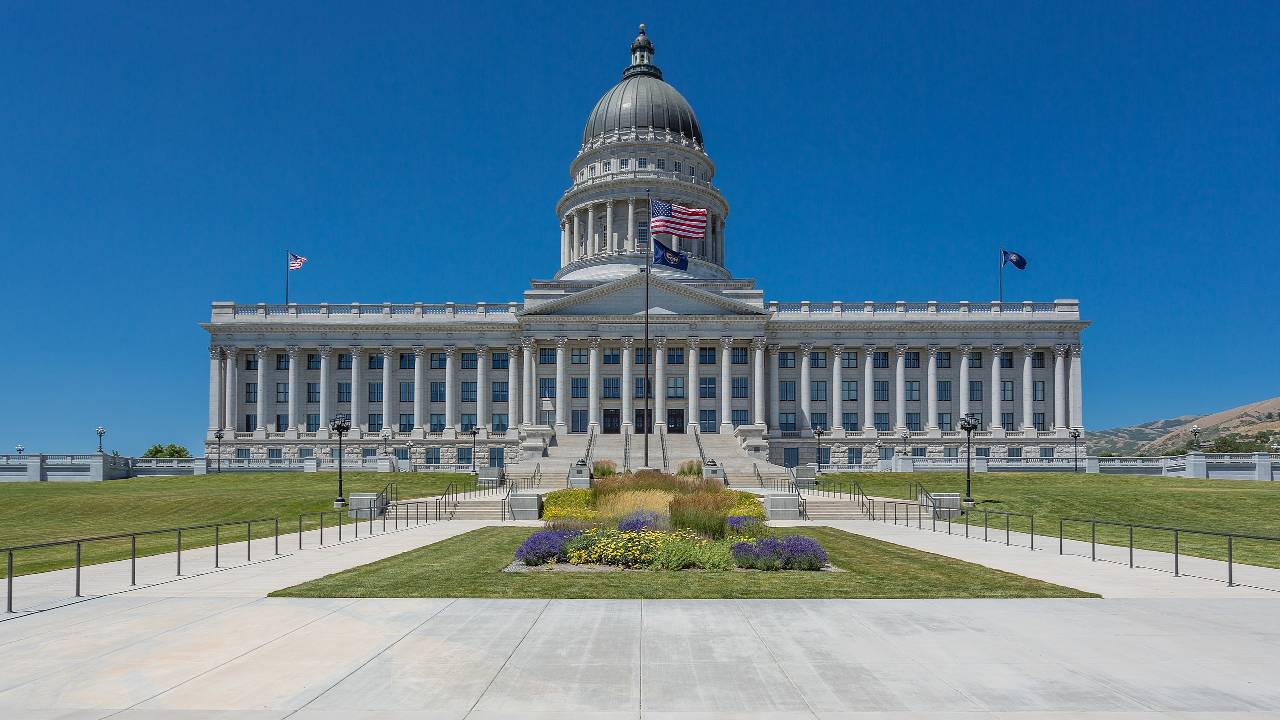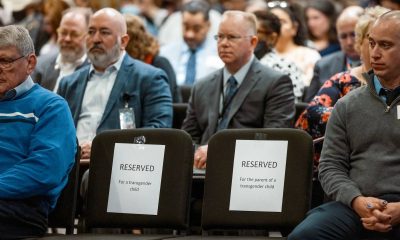Indiana
Indiana and Utah governors veto anti-trans sports bills
Lawmakers in Utah and Indiana are expected to override the vetoes, but advocates say the GOP opposition is still significant.

This story was originally published by The 19th
 Republican governors in Utah and Indiana this week vetoed two bills that aim to bar transgender students, especially trans girls, from competing in school sports that match their gender identity.
Republican governors in Utah and Indiana this week vetoed two bills that aim to bar transgender students, especially trans girls, from competing in school sports that match their gender identity.
Both governors, in letters to statehouse leaders, said that the bills would expose their states’ high school athletic associations to lawsuits and that they see ongoing legal action against anti-trans bills in other states as a major deterrent to passing such a bill in their state.
While their vetoes are likely to be overridden, the governors’ responses are part of a small but growing reluctance among some Republican officials to back legislation that has been pushed overwhelmingly by members of their own party. Their responses also suggest that multiple lawsuits by the ACLU and Lambda Legal against anti-trans bills in states including Arkansas, West Virginia, and Tennessee are sending a message that the legislation is not worth legal and financial headaches.
“They are, I think, seeing the writing on the wall,” said Carl Charles, an attorney for Lambda Legal who challenges anti-trans bills in court. He is on the Lambda Legal team for two active lawsuits against anti-trans sports bills in Tennessee and West Virginia.
Gov. Spencer Cox of Utah, who had previously publicly vowed to block his state’s bill, explained his vote with one of the most lengthy public statements from a Republican governor opposing anti-trans legislation since a record number of bills began to be introduced last year.
“I recognize the political realities of my decision. Politically, it would be much easier and better for me to simply sign the bill,” he wrote. But, with only four known transgender kids playing high school sports in Utah — and only one trans student playing girls sports in the state — he said that he ultimately could not support the bill.
“Four kids and only one of them playing girls sports. That’s what all of this is about,” Cox wrote. “Four kids who aren’t dominating or winning trophies or taking scholarships. … Rarely has so much fear and anger been directed at so few.”
Cox did express his support for restrictions on trans youth’s sports participation at the collegiate level and denounced wins by University of Pennsylvania swimmer Lia Thomas as “terrible for women’s sports.”
Gov. Eric Holcomb of Indiana wrote in a letter to Todd Huston, speaker of the Indiana House of Representatives, that the bills’ language is unclear about how it would be enforced across different school districts and counties. While noting he supports the overall goal of litigating fairness in women’s sports, he added that he has not seen evidence that government interference is needed.
Shannon Minter, legal director of the National Center for Lesbian Rights (NCLR) who has been representing LGBTQ+ rights cases for nearly 30 years, said in an email that the governors’ vetoes are “incredibly encouraging” and point to the critical role of courts responding to anti-trans bills.
“This underscores the power of litigation in securing equality for transgender kids,” he said. “We are hopeful the vetoes will hold, but if they are overridden, NCLR and other groups are fully prepared to challenge these despicable laws in court.”
Jennifer Williams, the nation’s first openly transgender municipal chair for the Republican Party, said she sees the governors’ vetoes as a signal that advocacy efforts, especially those that prioritize outreach to Republicans, are paying off.
“If you blanketly write off Republican officials … then you don’t give our community the chance to win and defeat these bills,” she said.
Last year, two Republican governors vetoed anti-trans bills — and one vocal proponent of anti-trans bills cautioned against potential lawsuits.
Gov. Doug Burgum of North Dakota, a Republican, vetoed a bill that would have banned K-12 trans students from playing on teams that match their gender identity — also pointing to a lack of evidence to support the legislation. His veto was sustained in the state Senate. Gov. Asa Hutchinson of Arkansas, also a Republican, vetoed a bill to ban gender-affirming care that was ultimately passed through a veto override — and promptly met with legal challenges.
Hutchinson told Axios last year that, although he signed two measures to ban trans students’ participation in sports, he blocked the health care legislation because it “was not theoretical.” He acknowledged that no one had cited an example of trans athletes competing in the state.
Gov. Kristi Noem of South Dakota, a Republican who has advocated strongly in favor of anti-trans bills and recently released a high-profile campaign ad supporting them, also initially opposed an anti-trans sports bill last year due to “vague” language and the potential for a NCAA lawsuit. Instead, she issued executive orders to enact a ban.
In Utah, lawmakers are expected to meet Friday to override Cox’s bill, The Salt Lake Tribune reports. In response, Cox has already called for a special session this Friday to alter the bill’s language, which as it stands could make school districts liable for damages if sued.
Republican lawmakers in Indiana have also vowed to override their governors’ veto, as Huston has promised a vote on May 24, when lawmakers will be present for a one-day special session, IndyStar reports.
Charles said the gubernatorial opposition is noteworthy, even if state legislators go on to override their vetoes.
“The bills being considered and being passed have an atmospheric effect on trans children, their families, other trans people,” he said. “So do these statements of support. These are incredibly significant.”
The 19th is an independent, nonprofit newsroom reporting at the intersection of gender, politics and policy.














